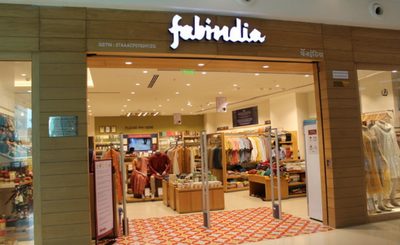Gold is old; sneakers are its replacement.
According to Statista, the worldwide sneaker resale market is valued at $6 billion and is projected to reach $30 billion by the end of this decade. The most wanted sneakers of the year, the Air Jordan 1 Retro High “Chicago Lost and Found,” were released by Nike on November 19 in India. In India, Nike charged Rs 16,995 for each pair of shoes. However, consumers like you and I will pay at least Rs 35,000–40,000 to purchase them. You ask, how is that? All of this is due to resellers. No matter how hard you ask, a sneakerhead will never disclose the cost of their shoes. They are an asset whose worth grows over time. The most you might receive in return is a sneaky, covert smile. People who know, know.
“These sneakers come in minimal quantities to India,” Nikhil Jain, a 30-year-old reseller, explained. “Resellers like us buy them and keep them as an asset before we can sell them at a premium. The longer we keep them, the more the expected profit.” In India, the sneaker community is expanding, and with it, the number of people who serve it. The shoe industry does not end at retailers, unlike most retail commodities. In actuality, many customers don’t purchase their pair from physical stores. The deal is closed by the resellers. Collectors of unique sneakers are resellers. They buy most of the teams as soon as they hit the market. High prices result from a lack of supply and increased demand.
Thus, more than 5 lakh pairs of sneakers were made for “Chicago Lost and Found” and given globally. India received roughly 10,000 pairs. These shoes are regarded as some of the least expensive. By reselling just one team, resellers stand to make a profit of more than 135 per cent. With the anticipated resale price at Rs. 1 lakh, this profit margin will surpass 500% in a year. Nike contributes $46.7 billion of the $72.27 billion global value of sneakers, according to Statista. $2.60 billion of this revenue comes from India. On the other hand, the global value of the sneaker resale market is currently $6 billion and is projected to reach $30 billion by the end of this decade. Jain, the person behind his resale business, City Kicks, is proud to be a part of the craze.
Three retail companies—Nike, VegNonVeg, and SuperKicks—bring all Nike footwear to India. These sneakers may be purchased offline in Mumbai, Delhi, Hyderabad, Bangalore, and online. These shops publicly announce the introduction of footwear on the market. They are retainable to anyone as long as they are quick enough. The stock may last for days on occasion or just a few minutes. Three methods exist for getting a pair: First, order the footwear online.
Two, enter the raffle and try your luck. Many people waited in line outside Wagle Sports, the city’s oldest sports shop and the venue chosen by SuperKicks for the raffle, much as they did in Mumbai for the “Lost and Found” event.
Three, wait in a line outside the stores for what could take days (this occurs if retailers decide to sell sneakers outright rather than raffle them off).
In the second and third situations, it stands to reason that the resellers based in the cities above have an advantage. But remember that one person can only purchase one pair of sneakers at a time, and they must also only be available in their size. Every enterprise entails risk. These shoes occasionally fail to sell. And that’s where Harmanpreet Sandhu, 22, steps in to save the day.
Today, Sandhu, who was among the first to start reselling, is the manager of the renowned streetwear shop Free Society in Bandra, Mumbai.






